You want Stop animal cruelty and any Animal mistreatment counteract? Then you've come to the right place! "Everything that man does to animals comes back to man." This was already said by the Greek philosopher Pythagoras, who not only dealt with right-angled triangles, but also with animal ethics. He is right. It is not human to exploit defenseless, helpless and emotional creatures. Whether cow, pig, mouse or fish - all animals have a sense of pain. And there is no difference between domestic animals and farm animals.
Therefore, in this article you will learn everything worth knowing and helpful about animal cruelty. From the definition, to instructive examples and causes, to the solutions. Learn above all what you can do in everyday life against it.
Tip: In a separate post you can learn more about the emotional side of animalsthat will increase your motivation in the fight against animal cruelty immeasurably.
What is animal cruelty actually?
The Duden describes it, for example, as "unnecessary torture and crude mistreatment of animals". While the torture, mistreatment or unnecessary killing of animals is referred to as active animal cruelty, the neglect or neglect of animals, is considered a passive form of animal cruelty.₁
Colloquially, however, we use the term cruelty to animals to mean basically all pain and suffering inflicted on an animal - up to and including death.
Types and examples
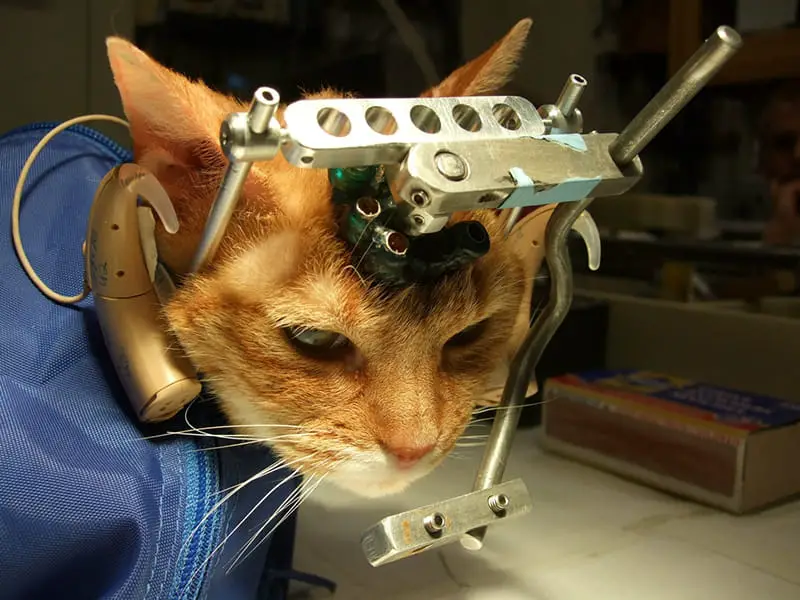
Now, of course, it is important to be aware of when in human everyday life - whether consciously or unconsciously - there is basically mistreatment of animals. Here are therefore some types or examples of animal cruelty.
Movie Tip: For deeper insights you should definitely check out the Dominion film watch. There you can see how - partly systematic - cruelty to animals takes place in all the areas mentioned. Also take a look at my recommendations for more vegan documentaries.
Food industry
Germany ranks first in pig slaughter with more than 60 million animals killed per year.₂ Congratulations. Without brutal Factory farming this would not be possible. The animals have their curly tails cut off, their teeth ground and antibiotics administered. They sit without freedom of movement in far too narrow cages and in their own excrement. And this despite the fact that pigs are actually such clean and highly intelligent animals. Then they are gassed or stunned with a bolt gun and slit open. This whole procedure means physical and mental pain. Besides pigs, this also happens to cows, chickens, sheep, geese, ducks, rabbits and many other animals in factory farming.
Notice: Did you know that male chicks in factory farms are gassed or shredded immediately after birth? You can learn more about this in the article about the Chick Shredding.
Clothing industry
However, the skin of cows, the wool of sheep or the fur of rabbits also serve the clothing industry. Mink fur is particularly popular, which is why there is also cruel factory farming for it. The animals are kept in cramped cages on a grid floor. For many months they spend their monotonous lives directly above their own excrement. The greed for new outfits and profit - but also the combination with the fast-moving and every week new trend dictating Fast Fashion thus ensure the mistreatment of animals.
Entertainment Industry
Bullfights, circus animal abuse, dog racing, cockfighting or animals as tourist attractions. Animal cruelty occurs, for example, through caging, in the training process or in the context of inadequate feeding. All because we humans are entertained - and other people want to earn a lot of money through the exploitation of animals.
Laboratory animals in research
According to the German Animal Welfare Association, almost three million animals suffer and die in German laboratories. There, for example, their genetic information is manipulated to make them artificially ill. A large part of the Animal testing serves basic research and has no benefit for humans.
Abuse and neglect of pets
Of course, animal cruelty also occurs frequently in private households. For over 20 years, worldwide studies have shown that violence against animals often precedes or can be coupled with violence against humans (child abuse/domestic violence).₃ Deliberate cruelty to animals is an antisocial personality disorder - but it exists.
In addition to active animal abuse, many animals are simply neglected and left alone with, for example, a parasite infestation, dehydration or starving.
Traditional customs
Of course, the abuse of animals can also have a cultural background. Animal cruelty as a tradition? Phew. But in fact, some customs are so ingrained that people forget what they are actually doing to animals. In France, for example, "fat bunting" is popular. For this, the songbird ortolan is caught and fattened in the dark for 14 days. When it is fat enough, it is drowned in brandy and cooked in a pot.₄
Can you think of other examples of animal cruelty? Then feel free to write a comment below this post with your pointers.
Penalties
In Germany, cruelty to animals is classified as a criminal offense under "Section 17 of the Animal Protection Act (TierSchG)". In the eyes of the law, anyone who kills vertebrates without cause or inflicts significant suffering or pain on them is considered to be cruelty to animals. The infliction of repeated pain or suffering or over a prolonged period of time is also considered animal cruelty by the legislature.
Attempted or negligent cruelty to animals, as well as animal abuse, on the other hand, are only administrative offenses that are punished with fines. Animal abusers rarely have to go to prison.₅
Statistics for animal cruelty
Here are some facts and figures around animal abuse that will give you an even clearer picture of the current state of this issue:
- In 2016, 771 people in Germany were convicted of mistreating animals. Among them 748 adults, 16 adolescents and 7 juveniles.₆
- Only 50 people were sentenced to prison for animal cruelty in Germany in 2016. 46 of them on probation.₇
- In 2018, a total of 2,825,066 Vertebrates and cephalopods used for scientific purposes. 68,352 animals were killed in the process without prior testing.₈
- In 2018, 2.1 million mice and 300,000 rats, 230,000 fish, 3,324 monkeys, 86,000 rabbits, and 3,993 dogs and 765 cats were used in animal experiments.₉
- 11.5 million animals were used in experiments in the EU in 2011, according to the European Commission report.₁₀
Quotes Against Animal Cruelty
Here are some sayings that are sure to motivate you to take a stand against animal cruelty:
"As long as people think that animals don't feel,
animals need to feel that humans don't think." (Anonymous)
"Animal welfare is education for humanity." (Albert Schweitzer)
"Animals, like humans, feel joy and pain, happiness and unhappiness." (Charles Darwin)
"Animals are my friends and I don't eat my friends." (George Bernard Shaw)
„Any stupid boy can crush a beetle. But all the professors in the world can't make one." (Arthur Schopenhauer)
Tip: If you could use some more inspiration in the fight for animals, just take a look at my extensive collection effective animal welfare quotes.
Causes and reasons for animal cruelty
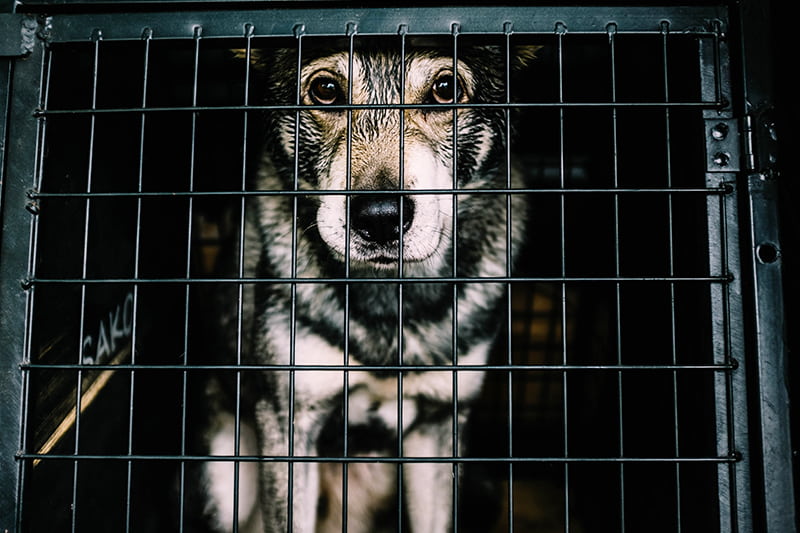
Whether impulsive or passive - there are so many (bad) Reasons for animal cruelty. The natural attitude of animal-friendly people is, of course, that there should be no reasons at all for the mistreatment or exploitation of animals. However, if you look into it a bit more, you will notice that the reasons are mainly psychological in nature. Here are some causes of animal cruelty to further sharpen your picture of the problem.
- Monetary drive (e.g. income from occupation as operator or employee of a company in factory farming).
- Hatred and anger (e.g. due to misbehavior of the animal)
- Retaliation (e.g., for revenge against an ex-girlfriend).
- Peer pressure (e.g. during a test of courage)
- Animal phobia (e.g. for fear of pigeons)
- Ignorance (e.g. Feeding ducks with bread)
- Lack of money or time (e.g. if the costs of keeping horses are too high).
- Thrill (e.g. to prove how strong and brave you are).
- Low, educational skills (e.g. misbehavior of the animal punished with kicks).
- Negative attitude towards animal species (e.g. if someone has had bad experiences with Rottweilers in the past).
- …
Can you think of any other reasons for the torture of animals within our society? Then just write me a comment and I'll add them here in this paragraph.
How can everyone stop animal cruelty?
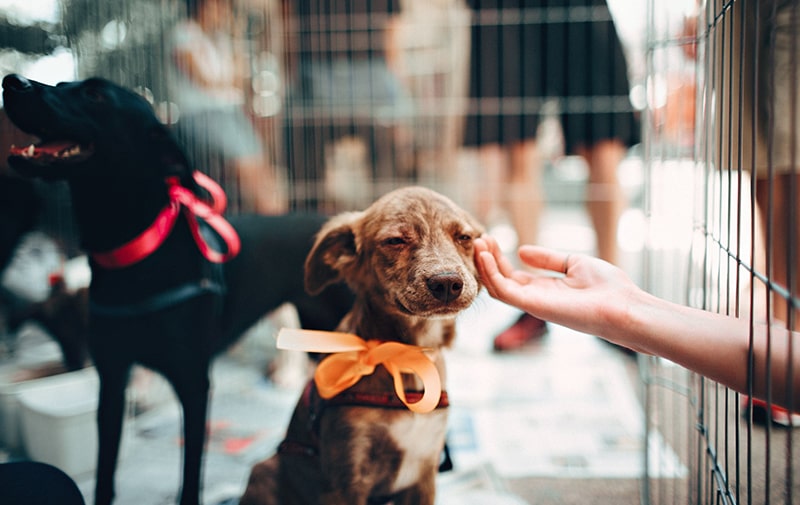
Perhaps we will never be able to make up for what we have done to the animals. Nevertheless, we have the chance to ensure that animal cruelty comes to an end, at least in the future. In any case, it is important that you always stick to your animal-friendly attitude and don't let others tempt you into any misdeeds just to belong to them for a moment. One does not want to belong to animal abusers. Animals are sentient beings and not things. Here are some advice, information and recommendations that anyone can use to reduce and stop the mistreatment of animals.
Recognize animal cruelty and collect evidence
If you want to do something about the mistreatment of animals, you have to look more closely and often regularly. Sometimes you can spot animal cruelty directly from an animal abuser's active involvement - but often only after looking several times. Here are some tips for spotting this constant animal abuse:
- Are there any unusual wounds on the animal?
- Is the animal aggressive and does it seem trained?
- Are there far too many animals living in a confined space on a property?
- Does the animal appear emaciated, hungry, or dehydrated?
- Does the animal have a poor physical condition?
- Is the animal homeless?
- Does the animal seem traumatized?
- …
If you have concerns about these questions or your gut feeling, it is time to act. Document evidence and write down everything important about your observations. (Witnesses, time, facts, etc.)
Notice: Of course, veterinarians must also look very closely and, if necessary, seek a personal conversation with the pet owners.
Talk to responsible persons
If you have observed animal cruelty or mistreatment of animals, then you should - of course under assessment of the respective situation - seek the conversation with the animal abuser. Sometimes such things happen unconsciously due to lack of education. And sometimes people show understanding. In many cases, however, the opposite is the case. Then nothing helps and you should report the animal cruelty.
Report animal cruelty
Animal welfare organizations are not allowed to control the handling of animals, but you can still report cruelty to animals and mistreatment of animals there. The violations will be forwarded to the veterinary office anyway, which is obliged to take action against acts and conditions that violate animal welfare. If, for example, you see emaciated horses in a paddock or a dog owner who kicks his four-legged friend aggressively, you can report the animal torture or abuse directly to the veterinary office.
When displaying, you need to know the following things:
- Animal
- Violation
- Location
- Contact details of you and the animal abuser
- Request for control and confirmation of receipt
Tip: You can But also report animal cruelty via organizations like PETA.
Demand bans and penalties
If you want to change grievances, you have to raise your voice. There is no point in complaining when action should have been taken long ago. The Circus Roncalli, for example, does without circus animals, because the pressure of the guests and the general criticism of this kind of exploitation of animals became too great - and is thus a positive example. In Sweden or Bolivia circus animals were even prohibited by law.
Such prohibitions would not occur if no one were committed to them. You can for example Start online petitions or make yourself strong for animal protection on demos.
Animal cruelty free diet
That the renunciation of meat alone has an incredible positive meaning for the life of animals is self-explanatory. Because no animal wants to die. The plant-based diet or even a reduction in your meat consumption ensures that for your taste experience no or at least animals must suffer and die.
You're off to a good start with these posts.
- Become a vegetarian - It's that easy
- Tips for the start into vegan life
- Foods that are surprisingly not vegetarian
- Prejudices against vegans
The meat-free and preferably entirely animal-free diet has also had an impact on many of the biggest environmental problems of our time, like the climate change or the Deforestation.
Save animals
If you see an orphaned animal in acute distress, then you should - after considering the common sense in the respective situation - also save it. No living creature deserves to suffer.
However, do not try to raise a fawn that has been hit by a car yourself, but give it to an expert rescue center in the vicinity. It is best to report the accident to the police, who will then locate the hunting leaseholder or gamekeeper.
Support animal welfare organizations
If you don't have much time to be more active for animals yourself, you can also support existing organizations and associations that do this every day. For example, by financially supporting their work for the protection of animals with a (regular) donation.
I have given you here a List with recommendable animal welfare organizations who will surely be happy about your support.
Anyone can stop animal cruelty!
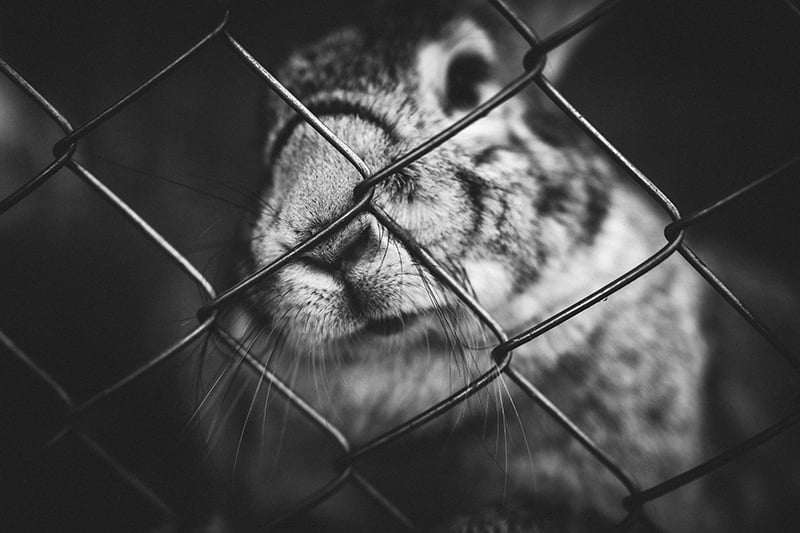
The way we have treated animals will be looked upon with disgust by future generations. From this moment on, no one can claim not to have known about all the atrocities committed by mankind against animals. We must learn to question their connection with our own habits and behaviors. No one should look the other way when animal cruelty is observed. And no one should allow animals to suffer for our meals, entertainment, or clothing.
Do you agree? And do you have any questions or suggestions about this article on animal cruelty? Then just write me a comment.
Be always kind to animals,

PS.: Feel free to look around a bit in the animal welfare blog around. There you will find many more tips on how to actively support animals in your everyday life.
References:
₁ V. Faust: Psychiatry Today - Recognizing, Understanding, Preventing, Treating Mental Disorders, available at http://www.psychosoziale-gesundheit.net/pdf/(Int.1-Tierquaelerei).pdf. [19.03.2020].
₂ M. Beckers, C. Dietz; Süddeutsche Zeitung GmbH: What you should know about factory farming (as of 03.03.2014), available at https://t1p.de/xj56. [19.03.2020].
₃ J. Schultz, Landestierärztekammer: Gewalt gegen Tiere: Tierquälerei als Indiz für Gewalt gegen Menschen, available at https://t1p.de/p8wi. [19.03.2020].
₄ Geo.de, G+J Medien GmbH: Are we allowed to get upset about other countries' culinary cruelty to animals? (Accessed 11 June 2019), Available from: https://www.geo.de/natur/nachhaltigkeit/21463-rtkl-singvoegel-als-delikatesse-duerfen-wir-uns-ueber-die-kulinarische. [19.03.2020].
₅ Einbock GmbH; Juraforum.de: Strafen bei Tierquälerei (Stand: 10.04.2016), available at https://www.juraforum.de/ratgeber/tierschutz/strafen-bei-tierquaelerei. [1903.2020].
₆,₇ Scientific Services, German Bundestag (2018): Statistics on the punishment of animal cruelty in Germany, available at https://t1p.de/jj26 [19.03.2020].
₈,₉,₁₀ DEUTSCHER TIERSCHUTZBUND e.V. (2018): Statistics on laboratory animals, available at https://t1p.de/xliy. [19.03.2020].

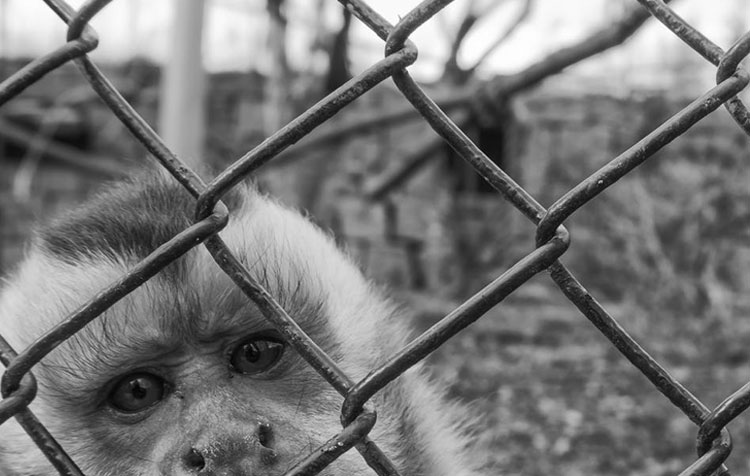




@Christoph Schulz
Very good informative article!
For animals, the devil does not have horns and a club foot, but a human visage.-
Animal cruelty is just what people who have animals but do not want and therefore treat them as if they were worth nothing.This is unfortunately not true they protect us and, They do what we said even if they sometimes do not do it is still not one of the many reasons to mistreat them.I myself have no pet but I know no matter whether dog.cat,bird and a few more all animals are worth the same whether it is a lion or a tiger all are worth the same and that's why I want it to stay that way so all the torture animals are just people who do not deserve to live
Comments are closed.